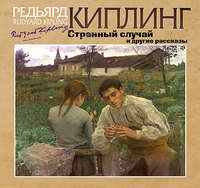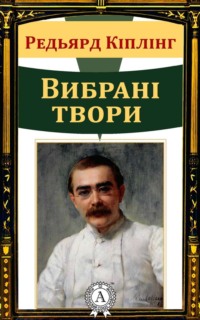
Полная версия
Just So Stories


Titel: Just So Stories
von ca. 337-422 Faxian, Sir Samuel White Baker, Sax Rohmer, Bernardin de Saint-Pierre, Maria Edgeworth, Saint Sir Thomas More, Herodotus, L. Mühlbach, Herbert Allen Giles, G. K. Chesterton, Algernon Charles Swinburne, Rudyard Kipling, A. J. O'Reilly, William Bray, O. Henry, graf Leo Tolstoy, Anonymous, Lewis Wallace, Johann Wolfgang von Goethe, Edgar Allan Poe, Jack London, Elizabeth Cleghorn Gaskell, Jules Verne, Frank Frankfort Moore, Susan Fenimore Cooper, Anthony Trollope, Henry James, T. Smollett, Thomas Burke, Emma Goldman, George Eliot, Henry Rider Haggard, Baron Thomas Babington Macaulay Macaulay, A. Maynard Barbour, Edmund Burke, Gerold K. Rohner, Bernard Shaw, Sir Joshua Reynolds, Bret Harte, Nathaniel Hawthorne, Jerome K. Jerome, Isabella L. Bird, Christoph Martin Wieland, Rainer Maria Rilke, Ludwig Anzengruber, Freiherr von Ludwig Achim Arnim, G. Harvey Ralphson, John Galsworthy, George Sand, Pierre Loti, Fyodor Dostoyevsky, Giambattista Basile, Homer, John Webster, P. G. Wodehouse, William Shakespeare, Edward Payson Roe, Sir Walter Raleigh, Victor [pseud.] Appleton, Arnold Bennett, James Fenimore Cooper, James Hogg, Richard Harding Davis, Ernest Thompson Seton, William MacLeod Raine, E. Phillips Oppenheim, Maksim Gorky, Henrik Ibsen, George MacDonald, Sir Max Beerbohm, Lucy Larcom, Various, Sir Robert S. Ball, Charles Darwin, Charles Reade, Adelaide Anne Procter, Joseph Conrad, Joel Chandler Harris, Joseph Crosby Lincoln, Alexander Whyte, Kate Douglas Smith Wiggin, James Lane Allen, Richard Jefferies, Honoré de Balzac, Wilhelm Busch, General Robert Edward Lee, Charles Dickens, Wilkie Collins, David Cory, Booth Tarkington, George Rawlinson, Sir Arthur Conan Doyle, Dinah Maria Mulock Craik, Christopher Evans, Thomas Henry Huxley, Mary Roberts Rinehart, Erskine Childers, Alice Freeman Palmer, Florence Converse, William Congreve, Stephen Crane, Madame de La Fayette, United States. Army. Corps of Engineers. Manhattan District, Willa Sibert Cather, Anna Katharine Green, Oliver Wendell Holmes, Charlotte M. Brame, Alphonse Daudet, Booker T. Washington, Clemens Brentano, Sylvester Mowry, Geoffrey Chaucer, Ellen Anderson Gholson Glasgow, Gail Hamilton, William Roscoe Thayer, Margaret Wade Campbell Deland, Rafael Sabatini, Archibald Henderson, Albert Payson Terhune, George Wharton James, Padraic Colum, James MacCaffrey, John Albert Macy, Annie Sullivan, Helen Keller, Walter Pater, Sir Richard Francis Burton, Baron de Jean-Baptiste-Antoine-Marcelin Marbot, Aristotle, Gustave Flaubert, 12th cent. de Troyes Chrétien, Valentine Williams, Thomas Wentworth Higginson, Alexandre Dumas fils, John Gay, Andrew Lang, Hester Lynch Piozzi, Jeffery Farnol, Alexander Pope, George Henry Borrow, Mark Twain, Francis Bacon, Margaret Pollock Sherwood, Henry Walter Bates, Thornton W. Burgess, Edmund G. Ross, William Alexander Linn, Voltaire, Giles Lytton Strachey, Henry Ossian Flipper, Émile Gaboriau, Arthur B. Reeve, Hugh Latimer, Baron Edward Bulwer Lytton Lytton, Benito Pérez Galdós, Robert Smythe Hichens, Niccolò Machiavelli, Prosper Mérimée, Ivan Sergeevich Turgenev, Anatole Cerfberr, Jules François Christophe, Victor Cherbuliez, Edgar B. P. Darlington, David Grayson, Mihai Nadin, Helen Beecher Long, Plutarch, Harriet Beecher Stowe, Margaret E. Sangster, Herman Melville, John Keats, Fannie Isabel Sherrick, Maurice Baring, William Terence Kane, Mary Russell Mitford, Henry Drummond, Rabindranath Tagore, Hubert Howe Bancroft, Charlotte Mary Yonge, William Dean Howells, Jesse F. Bone, Basil Hall Chamberlain, William Makepeace Thackeray, Samuel Butler, Frances Hodgson Burnett, E. Prentiss, Sir Walter Scott, Alexander K. McClure, David Livingstone, Bram Stoker, Victor Hugo, Patañjali, Amelia Ruth Gere Mason, Bertrand Russell, Alfred Russel Wallace, Molière, Robert Louis Stevenson, Simona Sumanaru, Michael Hart, Edmund Gosse, Samuel Smiles, Pierre Corneille, Clarence Edward Mulford, Mrs. Oliphant, George Pope Morris, Aristophanes, baron de Etienne-Léon Lamothe-Langon, William Morris, Henry David Thoreau, E. C. Bentley, Samuel Taylor Coleridge, Hippolyte Taine, Pedro Calderón de la Barca, John Philip Sousa, Wilhelm Grimm, Jacob Grimm, William Gardner, J. M. Judy, E. M. Forster, Percival Lowell, Alexandre Dumas père, William Greenwood, John Dryden, William T. Sherman, John Kendrick Bangs, Burton Egbert Stevenson, Eugene Wood, John Arbuthnot, Sir Richard Steele, Sir George Otto Trevelyan, William Charles Henry Wood, Marcel Proust, Philip Henry Sheridan, Abraham Lincoln, John Pinkerton, Thomas Hardy, Gotthold Ephraim Lessing, Oliver Goldsmith, Freiherr von der Friedrich Trenck, Eugene Field, Charles Dudley Warner, Andrew Everett Durham, Emily Dickinson, Emperor of Rome Marcus Aurelius, Edgar Wallace, Annie Roe Carr, Eleanor Stackhouse Atkinson, George McKinnon Wrong, Heinrich Zschokke, Harold Howland, Grace S. Richmond, Louisa May Alcott, Thomas Edwards, William Kirby, John McElroy, Margaret Sidney, Ford Madox Ford, Clara Louise Burnham, Karl Friedrich May
ISBN 978-3-7429-2679-1
Alle Rechte vorbehalten.
Es ist ohne vorherige schriftliche Erlaubnis nicht gestattet, dieses Werk im Ganzen oder in Teilen zu vervielfältigen oder zu veröffentlichen.
JUST SO STORIES
By Rudyard Kipling
Contents
HOW THE WHALE GOT HIS THROAT HOW THE CAMEL GOT HIS HUMP HOW THE RHINOCEROS GOT HIS SKIN HOW THE LEOPARD GOT HIS SPOTS THE ELEPHANT'S CHILD THE SING-SONG OF OLD MAN KANGAROO THE BEGINNING OF THE ARMADILLOS HOW THE FIRST LETTER WAS WRITTEN HOW THE ALPHABET WAS MADE THE CRAB THAT PLAYED WITH THE SEA THE CAT THAT WALKED BY HIMSELF THE BUTTERFLY THAT STAMPED
HOW THE WHALE GOT HIS THROAT
IN the sea, once upon a time, O my Best Beloved, there was a Whale, and he ate fishes. He ate the starfish and the garfish, and the crab and the dab, and the plaice and the dace, and the skate and his mate, and the mackereel and the pickereel, and the really truly twirly-whirly eel. All the fishes he could find in all the sea he ate with his mouth—so! Till at last there was only one small fish left in all the sea, and he was a small 'Stute Fish, and he swam a little behind the Whale's right ear, so as to be out of harm's way. Then the Whale stood up on his tail and said, 'I'm hungry.' And the small 'Stute Fish said in a small 'stute voice, 'Noble and generous Cetacean, have you ever tasted Man?'
'No,' said the Whale. 'What is it like?'
'Nice,' said the small 'Stute Fish. 'Nice but nubbly.'
'Then fetch me some,' said the Whale, and he made the sea froth up with his tail.
'One at a time is enough,' said the 'Stute Fish. 'If you swim to latitude Fifty North, longitude Forty West (that is magic), you will find, sitting on a raft, in the middle of the sea, with nothing on but a pair of blue canvas breeches, a pair of suspenders (you must not forget the suspenders, Best Beloved), and a jack-knife, one ship-wrecked Mariner, who, it is only fair to tell you, is a man of infinite-resource-and-sagacity.'
So the Whale swam and swam to latitude Fifty North, longitude Forty West, as fast as he could swim, and on a raft, in the middle of the sea, with nothing to wear except a pair of blue canvas breeches, a pair of suspenders (you must particularly remember the suspenders, Best Beloved), and a jack-knife, he found one single, solitary shipwrecked Mariner, trailing his toes in the water. (He had his mummy's leave to paddle, or else he would never have done it, because he was a man of infinite-resource-and-sagacity.)
Then the Whale opened his mouth back and back and back till it nearly touched his tail, and he swallowed the shipwrecked Mariner, and the raft he was sitting on, and his blue canvas breeches, and the suspenders (which you must not forget), and the jack-knife—He swallowed them all down into his warm, dark, inside cup-boards, and then he smacked his lips—so, and turned round three times on his tail.
But as soon as the Mariner, who was a man of infinite-resource-and-sagacity, found himself truly inside the Whale's warm, dark, inside cup-boards, he stumped and he jumped and he thumped and he bumped, and he pranced and he danced, and he banged and he clanged, and he hit and he bit, and he leaped and he creeped, and he prowled and he howled, and he hopped and he dropped, and he cried and he sighed, and he crawled and he bawled, and he stepped and he lepped, and he danced hornpipes where he shouldn't, and the Whale felt most unhappy indeed. (Have you forgotten the suspenders?)
So he said to the 'Stute Fish, 'This man is very nubbly, and besides he is making me hiccough. What shall I do?'
'Tell him to come out,' said the 'Stute Fish.
So the Whale called down his own throat to the shipwrecked Mariner, 'Come out and behave yourself. I've got the hiccoughs.'
'Nay, nay!' said the Mariner. 'Not so, but far otherwise. Take me to my natal-shore and the white-cliffs-of-Albion, and I'll think about it.' And he began to dance more than ever.
So the Whale swam and swam and swam, with both flippers and his tail, as hard as he could for the hiccoughs; and at last he saw the Mariner's natal-shore and the white-cliffs-of-Albion, and he rushed half-way up the beach, and opened his mouth wide and wide and wide, and said, 'Change here for Winchester, Ashuelot, Nashua, Keene, and stations on the Fitchburg Road;' and just as he said 'Fitch' the Mariner walked out of his mouth. But while the Whale had been swimming, the Mariner, who was indeed a person of infinite-resource-and-sagacity, had taken his jack-knife and cut up the raft into a little square grating all running criss-cross, and he had tied it firm with his suspenders (now, you know why you were not to forget the suspenders!), and he dragged that grating good and tight into the Whale's throat, and there it stuck! Then he recited the following Sloka, which, as you have not heard it, I will now proceed to relate—
For the Mariner he was also an Hi-ber-ni-an. And he stepped out on the shingle, and went home to his mother, who had given him leave to trail his toes in the water; and he married and lived happily ever afterward. So did the Whale. But from that day on, the grating in his throat, which he could neither cough up nor swallow down, prevented him eating anything except very, very small fish; and that is the reason why whales nowadays never eat men or boys or little girls.
The small 'Stute Fish went and hid himself in the mud under the Door-sills of the Equator. He was afraid that the Whale might be angry with him.
The Sailor took the jack-knife home. He was wearing the blue canvas breeches when he walked out on the shingle. The suspenders were left behind, you see, to tie the grating with; and that is the end of that tale.
HOW THE CAMEL GOT HIS HUMP
NOW this is the next tale, and it tells how the Camel got his big hump.
In the beginning of years, when the world was so new and all, and the Animals were just beginning to work for Man, there was a Camel, and he lived in the middle of a Howling Desert because he did not want to work; and besides, he was a Howler himself. So he ate sticks and thorns and tamarisks and milkweed and prickles, most 'scruciating idle; and when anybody spoke to him he said 'Humph!' Just 'Humph!' and no more.
Presently the Horse came to him on Monday morning, with a saddle on his back and a bit in his mouth, and said, 'Camel, O Camel, come out and trot like the rest of us.'
'Humph!' said the Camel; and the Horse went away and told the Man.
Presently the Dog came to him, with a stick in his mouth, and said, 'Camel, O Camel, come and fetch and carry like the rest of us.'
'Humph!' said the Camel; and the Dog went away and told the Man.
Presently the Ox came to him, with the yoke on his neck and said, 'Camel, O Camel, come and plough like the rest of us.'
'Humph!' said the Camel; and the Ox went away and told the Man.
At the end of the day the Man called the Horse and the Dog and the Ox together, and said, 'Three, O Three, I'm very sorry for you (with the world so new-and-all); but that Humph-thing in the Desert can't work, or he would have been here by now, so I am going to leave him alone, and you must work double-time to make up for it.'
That made the Three very angry (with the world so new-and-all), and they held a palaver, and an indaba, and a punchayet, and a pow-wow on the edge of the Desert; and the Camel came chewing on milkweed most 'scruciating idle, and laughed at them. Then he said 'Humph!' and went away again.
Presently there came along the Djinn in charge of All Deserts, rolling in a cloud of dust (Djinns always travel that way because it is Magic), and he stopped to palaver and pow-pow with the Three.
'Djinn of All Deserts,' said the Horse, 'is it right for any one to be idle, with the world so new-and-all?'
'Certainly not,' said the Djinn.
'Well,' said the Horse, 'there's a thing in the middle of your Howling Desert (and he's a Howler himself) with a long neck and long legs, and he hasn't done a stroke of work since Monday morning. He won't trot.'
'Whew!' said the Djinn, whistling, 'that's my Camel, for all the gold in Arabia! What does he say about it?'
'He says "Humph!"' said the Dog; 'and he won't fetch and carry.'
'Does he say anything else?'
'Only "Humph!"; and he won't plough,' said the Ox.
'Very good,' said the Djinn. 'I'll humph him if you will kindly wait a minute.'
The Djinn rolled himself up in his dust-cloak, and took a bearing across the desert, and found the Camel most 'scruciatingly idle, looking at his own reflection in a pool of water.
'My long and bubbling friend,' said the Djinn, 'what's this I hear of your doing no work, with the world so new-and-all?'
'Humph!' said the Camel.
The Djinn sat down, with his chin in his hand, and began to think a Great Magic, while the Camel looked at his own reflection in the pool of water.









